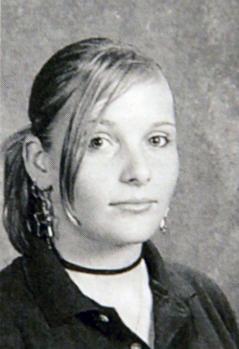|
|
|---|
Saturday, June 26, 2010
The Congressional Medal of Honor
The Congressional Medal of Honor is the highest and most prestigious military award bestowed. The Medal of Honor was initiated by Abraham Lincoln in 1862 and it is awarded in the name of Congress to a person who while a member of the armed services distinguishes him or herself conspicuously by gallantry and intrepidity at the risk of his/her life above and beyond the call of duty while engaged in an action against an enemy of the United States.
There have been 3,448 recipients receive this award since 1863 in our nation’s history, and only 97 are alive today. Kentucky has 42 honorees accredited to the state, as well as the distinct honor of having the only woman to ever be awarded this medal, and it was done so during the Civil War.
The Congressional Medal of Honor Society holds an annual convention for those distinguished service members who have received this prestigious award and their families to come together and remember all they have sacrificed, and those they have lost along the way.
The first Army Medal of Honor was awarded to Private Jacob Parrott during the American Civil War for his role in the Great Locomotive Chase. The only female Medal of Honor recipient is Mary Edwards Walker, a Civil War surgeon. Her medal was rescinded in 1917 along with many other non-combat awards, but it was restored by President Jimmy Carter in 1977.
While current regulations, (10 U.S.C. § 6241), beginning in 1918, explicitly state that recipients must be serving in the U.S. Armed Forces at the time of performing a valorous act that warrants the award, exceptions have been made. For example, Charles Lindbergh, while a reserve member of the U.S. Army Air Corps, received his Medal of Honor as a civilian pilot. In addition, the Medal of Honor was presented to the British Unknown Warrior by General Pershing on October 17, 1921; later the U.S. Unknown Soldier was reciprocally awarded the Victoria Cross, Britain's highest award for gallantry, on November 11, 1921.
Although being a U.S. citizen is not a prerequisite for eligibility to receive the medal, apart from a few exceptions, Medals of Honor can be awarded to only members of the U.S. armed forces. Sixty-one Canadians who were serving in the United States armed forces have received the Medal of Honor; most received it for actions in the American Civil War. Since 1900, only four have been awarded to Canadians. In the Vietnam War, Peter C. Lemon was the only Canadian recipient of the Medal of Honor.
Individual who have received the Congressional Medical of Honor, through their own personal bravery and self-sacrifice beyond the call of duty, have earned the accolades of a grateful nation. Many of them dedicate their time and resources to promote patriotism and instill the values of courage, commitment, and selfless service into the culture of today's youth. They have banded together to form the Congressional Medal of Honor Society.
Chartered by the Congress of the United States and organized for charitable and educational purposes, the Society serves - in part - to protect, uphold, and preserve the dignity, honor, and integrity of the medal and those who wear it. Of the 3,411 individuals who have received these medals, 97 are alive today.
THE CONGRESSIONAL MEDAL OF HONOR MEMORIAL - America’s highest award for Military Valor is the Medal of Honor. Those chosen to receive this award have performed acts of such conspicuous gallantry that their actions are considered “Above and beyond the call of duty”. The Congressional Medal of Honor Memorial is located in downtown Indianapolis, Indiana. It is a group of 27 curved, glass walls engraved with the names of the recipients of this Medal. There are 3,459 names etched in the glass. These men and one woman represent 15 major conflicts dating back to the Civil War, in which the United States has seen action.
Medal Of Honor Heroes Gather
June 07, 1998
by New York Times
SARATOGA SPRINGS, N.Y. - Recipients Of The Nation's Highest Military Award For Bravery Met For What Is An Annual Family Reunion Of Sorts.
They wore baseball caps and golf shirts and, some of them, hearing aids. They talked about wives and ex-wives, reminisced about 10-cent bottles of beer and just laughed a lot. Only the pointed gold medals dangling from their necks hinted that this was a convention of old heroes.
There was Lewis Lee Millett, his Army crew cut still sharp at age 77, who in Korea led a bayonet charge up a hill against enemy fire. And Ronald Ray, 56, who in Vietnam shielded his men from a grenade by diving in front of it. And Jack Montgomery, a small, quiet man of 80, who in World War II killed 11 Germans and captured 32 others in a single battle.
"We're just a bunch of old, beat-up soldiers," said John Finn, a Navy lieutenant in World War II, who, at 89, was the oldest of them all.
Arriving from every corner of the country, the 78 men who gathered here this weekend represented almost half of the 169 living recipients of the Medal of Honor, the nation's highest military award for bravery. They had chosen Saratoga Springs for their convention because of the town's rich military history, and on Friday they paraded to the cheers of more than 30,000 people.
Gen. George Patton once said, "I'd give my immortal soul for that medal." He never got the award, which is bestowed by the president and Congress. Perhaps that helps explain the humility of most of the men who did. If, in the public imagination, a Medal of Honor recipient is Gary Cooper as Alvin York or Sylvester Stallone as Rambo, what is striking in reality is how regular, ordinary and unassuming most of the recipients seem.
"Something had to be done," said Clarence Sasser, 50, an Army medic in Vietnam, explaining why he crawled through rice paddies under enemy fire to rescue wounded men in his company. "Somebody had to do something."
They all agreed that the Medal of Honor had transformed, if not defined, their lives and, for many, thrust them into the public eye without any preparation.
Suddenly, someone such as Nick Bacon, a self-described country boy from Arkansas who fought in Vietnam, found himself invited to presidential inaugurations, an honor bestowed on all recipients. But Bacon also discovered that he was expected to give speeches and be a role model. "You can't screw up," said Bacon, who is now the director of veterans affairs for the state of Arkansas. "You're representing everybody and everything the medal represents."
0 Comments:
Subscribe to:
Post Comments (Atom)















